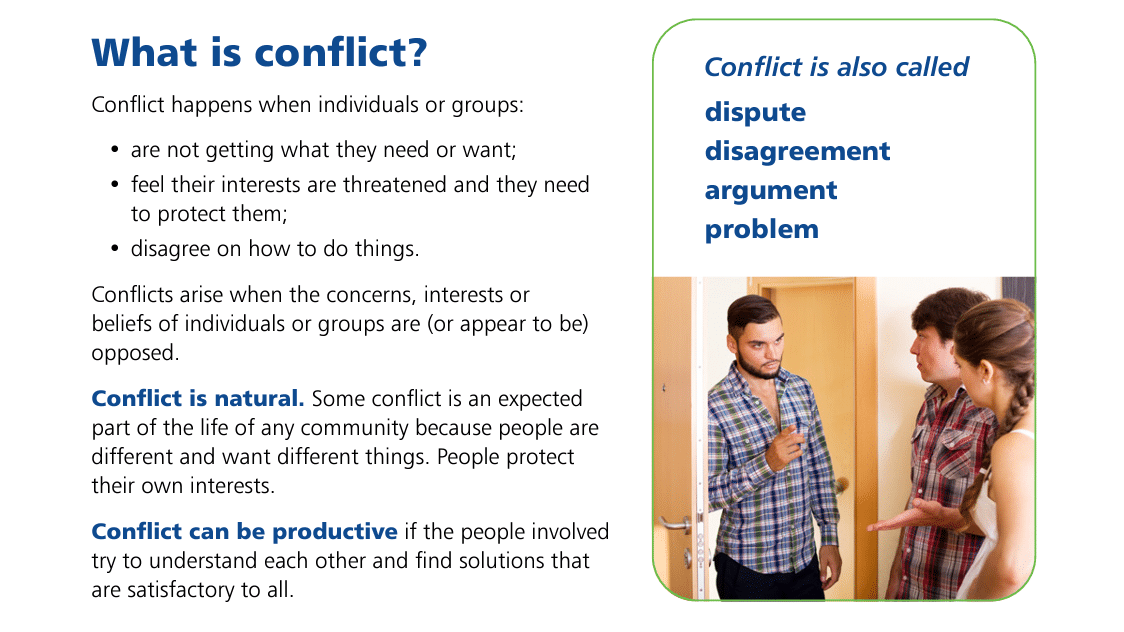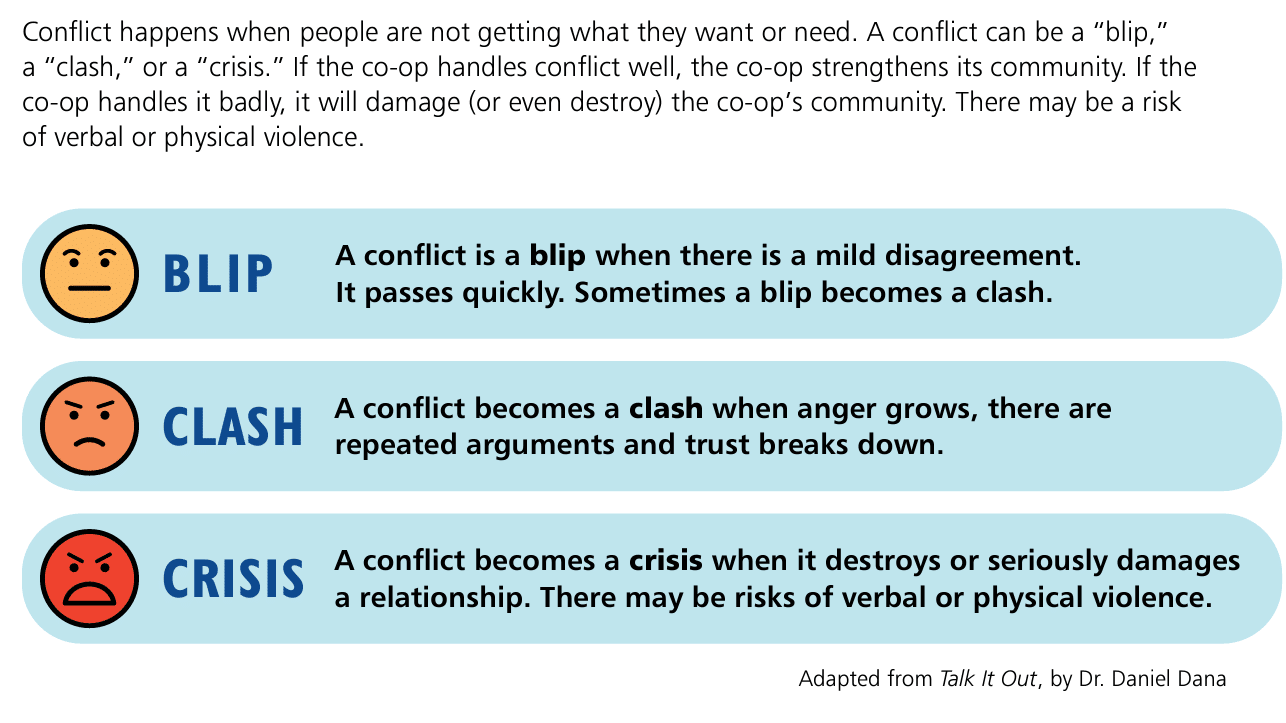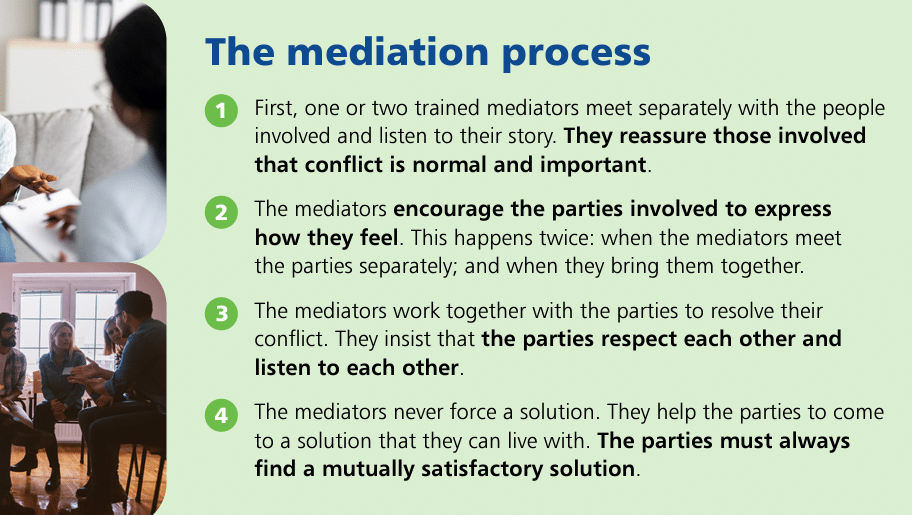CONFLICT
RESOULTION
Unresolved conflict can create tensions that interfere with the health of a housing co-operative’s community. The tensions can linger for many years, and spill over into every corner of the co-op. To help co-ops deal with this challenge issue, our friends at CHF Canada have developed a series of resources.

Overview
This series discusses conflict in housing co-ops as it affects co-op communities and ultimately co-op governance.
These resources provide CHF Canada’s best advice to assist members, Board of Directors and staff as they face conflict challenges.
To be clear, we are not training members to become conflict resolution experts! A key CHF Canada recommendation is for co-ops to use conflict mediation services. Mediation services are an effective way for co-ops to handle conflict that has grown from a minor problem to a large one.
This conflict series will help clarify the roles for members, Board of Directors and staff when conflict occurs in the co-op. Understanding everyone’s responsibilities makes it easier to find solutions. The series will also help co-op members and staff understand how to handle minor conflicts quickly.
Conflict in a co-op can be likened to a communicable disease: it is easily spread, but with some healthy habits, we can contain and treat it!
NOTE: Since these resources are for CHF Canada members only, you will need to register an account on their website to see the Resources section.

1. What is Conflict?
What is conflict? Explore the nature of conflict and its impact on housing co-op communities.
Conflict is certainly a part of life. It is often predictable because we are all different and our differences lead to conflict from time to time. Conflict is neither harmful nor creative in itself. How we deal with conflict makes it constructive or destructive.

2. Member-to-member conflict
Conflict happens when people are not getting what they want or need.
A conflict can be a “blip,” a “clash,” or a “crisis.” If the co-op handles conflict well, the co-op strengthens its community. If the co-op handles it badly, it will damage (or even destroy) the co-op’s community. There may be a risk of verbal or physical violence.
DOWNLOAD Conflict Series #2: Member-to-member conflict [PDF]

3. Conflict Mediation Services
Mediation is a process to resolve conflict by involving a neutral third party who is skilled and experienced in conflict resolution.
This third party is called the mediator. This person assists those in conflict to resolve their own conflict. The parties, in this case, the co-op members, enter into the process voluntarily. The mediator does not direct the outcome (the agreement) of the mediation process. The co-op members who are in conflict, have control over the agreements that they reach.